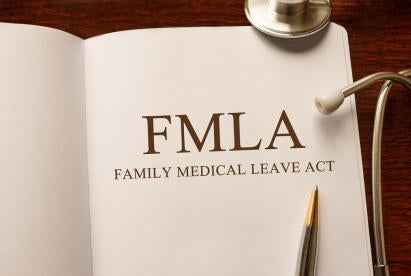



“What did I do wrong?” and “Am I doing this correctly?” are frequent questions from clients regarding FMLA administration. This is the eighth in a monthly series highlighting some of the more common mistakes employers can inadvertently make regarding FMLA administration.
Generally, an employer may request recertification if an employee requests an extension of FMLA leave, if circumstances described by the previous certification have changed significantly, or if the employer receives information that casts doubt upon the employee’s stated reason for the absence or the continuing validity of the certification. An employer should notify the employee of the need for recertification, and ask the employee to provide the supporting certification within 15 calendar days. Failing to properly request a recertification when a change in circumstances occurs can result in a claim of FLMA interference.
In Hansen v. Fincantieri Marine Group, LLC, Case No. 13-3391 (7 th Cir. Aug 18, 2014), an employee’s doctor estimated the frequency and duration of the employee’s medical flare-ups to be 4 episodes every 6 months, each lasting between 2 and 5 days. When the employee exceeded this estimate, the employer sent the recertification request directly to the doctor without informing the employee of the need for recertification. The recertification completed by the healthcare provider contained what the employer believed to be “errors” and the employer refused to accept the recertification. The employer then counted all absences that exceeded the original estimate against the attendance policy, which resulted in the employee’s termination.
The court took issue with the fact that the employer never gave the employee notice of the need for recertification, and instead sent the certification directly to the doctor. Because the employer did not properly seek recertification, the court considered the employer to have not sought recertification at all. The court found in favor of the employee, stating that an employer needs to seek proper recertification when an employee’s circumstances change; it is not entitled to simply add up what it sees as additional absences, count them under its attendance policy, and terminate the employee.
In Smith v. City of Niles, Case No. 11-2394 (6th Cir. 2012), an employee alleged that the employer engaged in “certification harassment” – repeated requests for certifications that interfered with the employee’s FMLA rights. The employee’s original certification estimated that he would need FMLA leave 1 day every 3 months, but in a 5 month time period, he took 6 days. The employer requested recertification just shy of 6 months from the initial leave. The employer again requested recertification 4 months later, when the employee voiced limitations that were not addressed in his prior certification. The employee took issue with the fact that these multiple requests came within six months of each other. The employer argued that the proximal recertification requests were proper because the employee’s circumstances had changed. The court found that the employer’s recertification requests fell squarely within the rule on changed circumstances, in favor of the employer.
Without careful attention to specific reasons for recertification and the proper process to request recertification, an employer can run afoul of the FMLA. An employer should carefully analyze each request for recertification to be sure it falls within the permissible reasons to request FMLA recertification, and follow the proper process to request recertification.